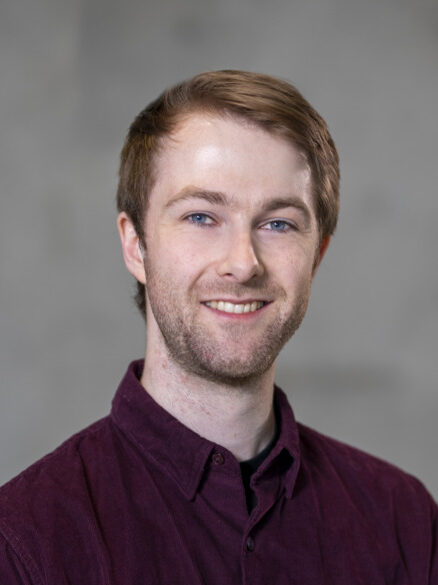
Biography
Dr. McLane Watson was born and raised in the small, beautiful town of Louisville, Colorado. In high school, he took a course in biotechnology taught by Kristin Donley that highlighted many exciting ways in which molecular biology was being applied to improve health and society. Mrs. Donley’s passion for teaching and exciting course material inspired him to pursue a career in biomedical research. In 2011, Dr. Watson began his collegiate career at Hope College in Holland, Michigan, where he majored in biology and minored in music. As a sophomore, Dr. Watson began doing research in the laboratories of Dr. Aaron Putzke and Dr. Jeremy Van Raamsdonk, where he studied C. elegans and aging. For his role in this work, he was awarded a Barry M. Goldwater Scholarship honorable mention and co-authored a paper that was published and highlighted in the journal Genetics.
Dr. Watson’s passion for cancer research is rooted in the loss of several family members, including an uncle and two grandmothers, to various cancers. While not alone in experiencing this type of loss, Dr. Watson felt called to help solve the devastating problem of cancer. After graduating from Hope College, Dr. Watson joined the lab of Dr. Cindy Miranti at Van Andel Institute in Grand Rapids, Michigan, as a lab technician. In Dr. Miranti’s lab, Dr. Watson worked on the intrinsic mechanisms of tumorigenesis in prostate cancer cells.
Around this time, the first examples of checkpoint blockade immunotherapy had been approved by the FDA and were changing cancer treatment and outcomes for the better. Inspired by immunotherapy’s success and the idea of an ever-adapting immune system to fight an ever-adapting cancer, Dr. Watson left Dr. Miranti’s lab to pursue a Ph.D. in tumor immunology at the University of Pittsburgh in the lab of Dr. Greg Delgoffe. Here Dr. Watson’s work focused on naturally immunosuppressive regulatory T cells (Tregs) and how they fuel their metabolism to survive and function in the metabolically harsh tumor microenvironment. Dr. Watson’s work culminated in a first author paper published in Nature for which he was awarded the Stephen L. Phillips Scientific Achievement Award, given by the University of Pittsburgh Biomedical Graduate Student Association for the best paper of the year.
After completing his doctorate, Dr. Watson began a postdoctoral fellowship in the lab of Dr. Russell Jones back at Van Andel Institute, where he investigates how metabolism shapes T cell function through epigenetic mechanisms.
